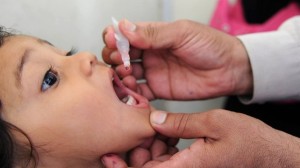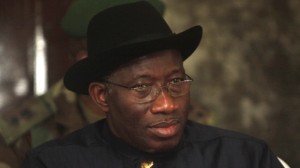News from Argentina, Pakistan and Nigeria
Tuesday's World Events — Posted on January 28, 2014
 ARGENTINA – President implements new regulations: Argentines must file tax report on every web purchase they make
ARGENTINA – President implements new regulations: Argentines must file tax report on every web purchase they make
Argentine President Cristina Fernandez de Kirchner has introduced new restrictions on online shopping as part of efforts to stop foreign currency reserves from falling any further. (Argentina’s reserves of hard currencies dropped by 30% last year.)
Anyone buying items through international websites will now need to sign a declaration and produce it at a customs office, where the packages have to be collected. The procedure will need to be repeated for every new purchase.
Items imported through websites such as Amazon and eBay are no longer delivered to people’s home addresses. The parcels need to be collected from the customs office.

President Cristina Kirchner is implementing the same socialist policies her late husband Néstor Carlos Kirchner did when he served as President of Argentina from 2003-2007
Argentines are only allowed to buy two international items annually, free of tax, up to a $25 total. Beyond that, they must pay a 50% tax.
One resident of Buenos Aires, who gave his name as Martin, described the tax as “crazy.” He told the BBC: “The real problem is that the item is received in customs now instead of at your home. Each time you go to customs, you need to spend three or four hours. I lose half a day’s work, which is unacceptable.”
Among the restrictions introduced more recently was a 35% tariff on credit card purchases made outside Argentina.
Despite the government’s efforts, Argentina’s reserves are now below $30billion – their lowest level since 2006.
President Cristina Kirchner is implementing the same socialist economic policies her late husband Néstor Carlos Kirchner did when he served as President of Argentina from 2003-2007. Mrs. Kirchner was elected president after her husband died in 2007.
PAKISTAN – Polio workers shot dead in Karachi
PESHAWAR [Three polio workers have been killed in the southern Pakistani city of Karachi, a day after authorities began a new vaccination drive (on Jan. 20).] …four [others] were shot and two more groups feared kidnapped, a World Health Organization official told NBC News.

A Pakistani health worker gives polio vaccine drops to a child at a vaccination center in Peshawar
Armed men gunned down one group in the Qayyum Abad area of Pakistan’s biggest city Karachi as they worked to inoculate people against the potentially fatal disease, said the official, who did not wish to be named for fear of reprisals. “Three members of the polio team, two of them women, died on the spot,” the official added. “Four other people were shot and injured in the city.”
Two other polio teams working in different areas of Karachi are missing and feared kidnapped, the official said, adding that the WHO was in touch with the local Sindh government in an effort to bring them to safety.
All of the teams were working as part of a United Nations health program to vaccinate the whole country against the highly infectious disease.
[No group has claimed responsibility, but the Taliban oppose the polio vaccination programs, which they see as a cover for international espionage. [Islamic] religious clerics have claimed that vaccinations are a Western ploy to render their males infertile. Pakistan has witnessed a campaign of violence against health workers, who militants also accuse of being part of a Western plot to sterilize Muslims.] Polio, which was virtually eliminated from the Western hemisphere in the second half of the 20th century, affects the nerves in the muscles necessary for breathing, causing respiratory difficulty and paralysis of the arms and legs.
Polio, which was virtually eliminated from the Western hemisphere in the second half of the 20th century, affects the nerves in the muscles necessary for breathing, causing respiratory difficulty and paralysis of the arms and legs.
In November last year, 11 schoolteachers were kidnapped in the Bara subdivision of the Khyber tribal region as they administered the vaccine. They were later released. In December three people working on polio vaccination teams were shot dead in northwest Pakistan, even though the vaccination program won the backing of a prominent [Islamic] religious seminary said to wield influence over Taliban groups.
According to the World Health Organization, 24 polio workers were killed last year in attacks on vaccination teams. The latest attack comes one day after health authorities in Sindh province, of which Karachi is the capital, began to inoculate 7.6 million children as part of a nationwide vaccination campaign.
NIGERIA – Country becomes 38th in Africa to criminalize homosexuality
Nigerian authorities began arresting gay men in the beginning of January after legislation was quietly approved criminalizing homosexuality and imposing prison terms up to 14 years for breaking the new law.
Several gay couples were taken into custody in the country’s majority-Muslim north, and rights groups feared that others would be targeted across the West African country.

Nigeria’s President Goodluck Jonathan
Goodluck Jonathan, Nigeria’s president, signed the Same Sex Marriage Prohibition Act into law on January 7, but there was no public report of the new law until journalists obtained a copy of the act on January 13.
The law prohibits homosexuals from meeting in groups of two or more, bans marriage or civil unions between people of the same sex, and criminalizes gay clubs and events.
Reuben Abati, the presidential spokesman, said Nigerians were happy with the new law. It makes Nigeria the 38th African nation to enact legislation persecuting gay people.
“This is a law that is in line with the people’s cultural and religious inclination,” Mr. Abati said. “More than 90 percent of us oppose same-sex marriage, so it is a law that is a reflection of the beliefs and orientation of Nigerian people. Nigerians are pleased with it.”
The country already has legislation outlawing homosexual sex. … Some have suggested Nigeria’s new law and a proposed one in Uganda were a backlash to Western pressure for gay rights.
British Prime Minister David Cameron pledged to cut British aid to countries that enacted new laws targeting homosexuals. In relation to the Nigerian law, a Foreign Office spokesman said: “The U.K. opposes any form of discrimination on the grounds of sexual orientation.”
(The news briefs above are from wire reports and staff reports posted at BBC New on Jan. 22, NBC News on Jan. 21 and London’s Daily Telegraph on Jan. 14.)
Background
ARGENTINA
ECONOMIC CRISIS: CAUSES AND CURES Jim Saxton (R-NJ), Vice Chairman Joint Economic Committee U.S. Congress June 2003
- In 1998, Argentina entered what turned out to be a four-year depression, during which its economy shrank 28 percent.
- Argentina’s experience has been cited as an example of the failure of free markets and fixed exchange rates, among other things.
- The evidence does not support those views. Rather, bad economic policies converted an ordinary recession into a depression.
- Three big tax increases in 2000-2001 discouraged growth, and meddling with the monetary system in mid 2001 created fear of currency devaluation.
- As a result, confidence in Argentina’s government finances evaporated.
- In a series of blunders that made matters even worse, from December 2001 to early 2002, succeeding governments undermined property rights by freezing bank deposits; defaulting on the government’s foreign debt in a thoughtless manner; ending the Argentine peso’s longstanding link to the dollar; forcibly converting dollar deposits and loans into Argentine pesos at unfavorable rates; and voiding contracts.
- Achieving sustained long-term economic growth will involve re-establishing respect for property rights.
PAKISTAN
- Pakistan is one of only three countries where polio remains endemic and is indeed on the rise, due in part to this militant resistance to polio mass vaccination campaigns. Nigeria and Afghanistan are the others, but WHO officials have stressed that progress is being made in these countries.
- Earlier this month India declared itself polio-free, three years after its last reported case - a landmark in the global battle against the disease, and largely due to a massive and sustained vaccination campaign. (from a Jan. 21 BBCNews report)
